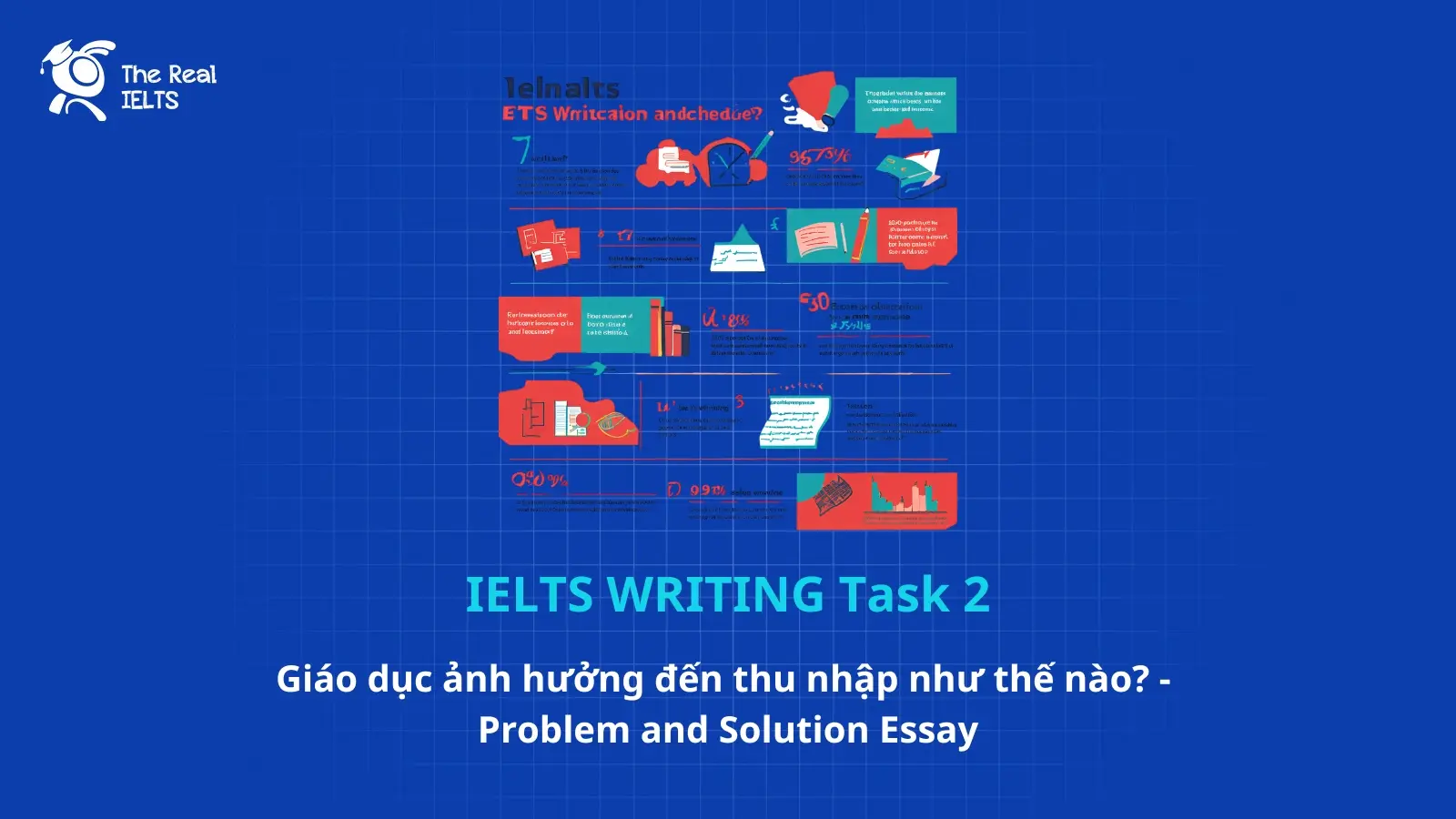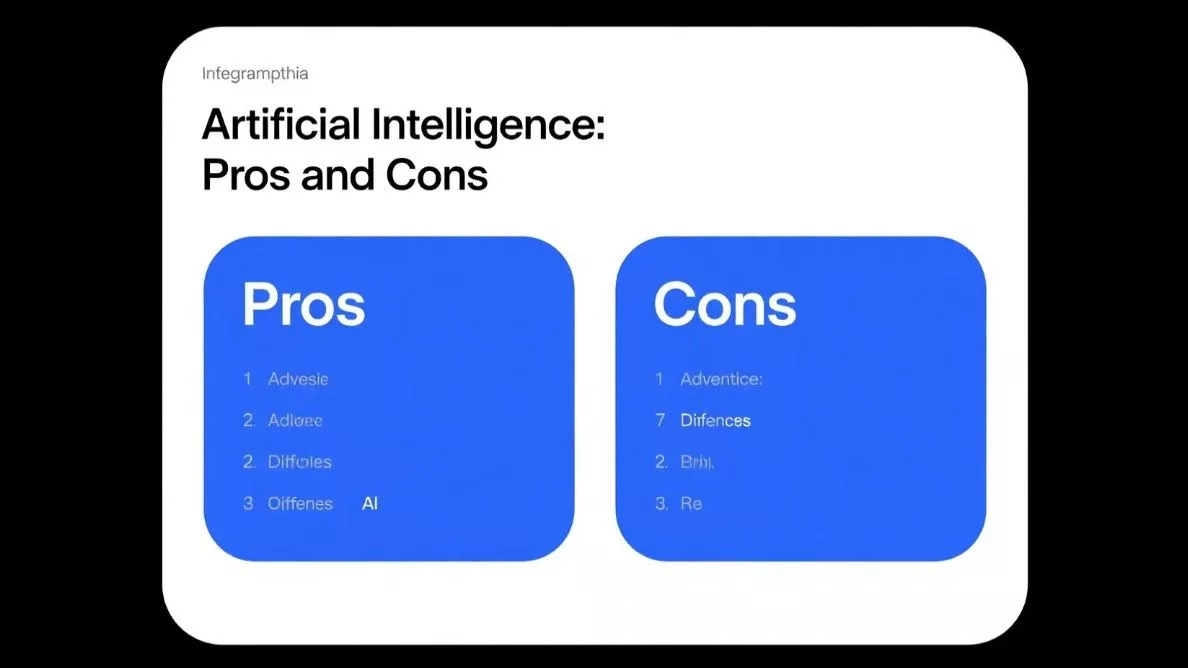Trong bài IELTS Writing Task 2 dạng Problem and Solution Essay, thí sinh cần xác định vấn đề liên quan đến giáo dục và thu nhập, đồng thời đề xuất giải pháp hiệu quả. Mặc dù giáo dục đóng vai trò quan trọng trong việc nâng cao thu nhập, nhiều người vẫn gặp khó khăn do chênh lệch cơ hội học tập.
Đề bài IELTS Writing Task 2: Giáo dục ảnh hưởng đến thu nhập như thế nào? – Problem and Solution Essay
Despite having higher education, some individuals still struggle with low incomes. What are the reasons for this issue, and what solutions can be implemented?
Ví dụ 1
While higher education is often associated with higher income levels, many graduates still struggle with low wages. This issue can be attributed to several factors, and understanding these reasons can help identify potential solutions to improve financial outcomes for educated individuals.
Reasons for Low Incomes Despite Higher Education
- Mismatch Between Education and Job Market Demands
One of the primary reasons for low income despite higher education is the mismatch between the skills graduates acquire and the jobs available. Some fields of study, such as humanities or social sciences, may not have strong demand in the job market, leading to underemployment or the need for graduates to settle for lower-paying jobs outside their field. - Lack of Practical Experience
Many graduates enter the job market with theoretical knowledge but lack the practical skills that employers seek. This lack of hands-on experience can limit their employability, resulting in lower-paying entry-level positions or long periods of job searching. - Economic Downturns and Job Market Saturation
Economic recessions or shifts in the job market can lead to reduced hiring and stagnant wages, even for individuals with higher education. In such environments, competition for jobs intensifies, and some graduates may find themselves underpaid or unable to secure positions in their chosen fields. - Geographical and Demographic Factors
Graduates in certain geographic areas or from underrepresented demographic groups may face additional barriers to accessing high-paying jobs. Regional economic disparities, discrimination, or lack of access to networks and mentorship can hinder career advancement, despite holding a degree. - Student Debt
The high cost of higher education, including student loans, can exacerbate financial challenges. Even graduates with good degrees may struggle to pay off substantial student loan debts, which can limit their ability to accumulate wealth or secure financial stability, especially if they are working in lower-paying jobs.
Potential Solutions
- Focus on Career-Oriented Education and Skills Development
Educational institutions should focus on aligning academic programs with current and future job market demands. Offering more career-oriented courses, internships, and partnerships with industries can provide students with practical skills and real-world experience, improving their employability and earning potential. - Encouraging Lifelong Learning and Adaptability
Graduates should be encouraged to pursue continuous professional development and upskilling throughout their careers. This may involve attending workshops, certifications, or learning new technologies to stay competitive in a rapidly evolving job market. - Expanding Vocational Training and Apprenticeships
While higher education remains important, vocational training and apprenticeships should be promoted as valuable alternatives. These paths often lead to high-paying jobs in skilled trades and technology fields, where there is demand for talent, and individuals can avoid the financial burden of college tuition. - Government Support and Economic Policies
Governments can play a role by creating policies that support job creation, particularly in areas with high unemployment. Additionally, measures such as student loan forgiveness, tax breaks, or programs that assist graduates in finding jobs can alleviate financial pressures and improve job opportunities for recent graduates. - Networking and Mentorship Programs
Building strong professional networks is essential for career advancement. Universities and employers can facilitate mentorship programs, internships, and networking events to connect graduates with industry leaders and potential employers, improving their chances of securing higher-paying positions.
Conclusion
While higher education is an important factor in achieving financial success, various issues such as skill mismatches, lack of practical experience, economic conditions, and student debt can prevent graduates from earning high incomes. By aligning education with job market needs, encouraging lifelong learning, and supporting graduates through practical experience and mentorship, these challenges can be addressed, leading to better financial outcomes for individuals with higher education.
Ví dụ 2
Although higher education is often seen as a pathway to financial stability, many graduates still face low-income challenges. This issue arises due to several factors, including job market saturation, skill mismatches, and economic instability. However, there are practical solutions that can help address this problem.
One major reason why some degree holders struggle with low incomes is the oversupply of graduates in certain fields. Many universities produce more graduates than the job market can absorb, leading to fierce competition for limited positions. As a result, individuals may have to accept low-paying jobs that are unrelated to their qualifications. Additionally, some degree programs do not equip students with practical skills that are directly applicable to the workplace. Many graduates lack industry-specific expertise or hands-on experience, making them less competitive compared to candidates with vocational training or technical skills. Another contributing factor is economic downturns, where companies reduce hiring or offer lower wages, leaving even highly educated individuals underemployed or unemployed.
To address these challenges, several solutions can be implemented. First, universities should align their curricula with labor market demands by incorporating more practical training, internships, and industry partnerships. This would help graduates develop skills that are directly applicable to high-paying jobs. Second, governments and educational institutions should promote vocational training and alternative career pathways, such as entrepreneurship and freelancing, to reduce reliance on traditional employment. Lastly, individuals should adopt a mindset of continuous learning by upskilling and reskilling through online courses and professional development programs to remain competitive in a dynamic job market.
In conclusion, the issue of low income among graduates stems from market saturation, skill gaps, and economic fluctuations. To mitigate this problem, education systems should be restructured to focus on employability, while individuals must proactively enhance their skills to adapt to changing job trends. By implementing these solutions, graduates can improve their financial prospects and secure well-paying careers.
Estimated Band Score: 8.0+
- Task Response: Well-developed analysis of causes and solutions.
- Coherence & Cohesion: Logical flow with clear transitions.
- Lexical Resource: Strong academic vocabulary and varied expressions.
- Grammatical Range & Accuracy: Wide range of sentence structures with minimal errors.
Ví dụ 3
While higher education is often associated with better job prospects and higher income, some degree holders still struggle with low earnings. This issue arises due to various factors, including job market conditions, skills mismatch, and economic factors. This essay explores the reasons behind this problem and proposes possible solutions.
Reasons Why Some Graduates Struggle with Low Incomes
- Job Market Saturation:
- In some fields, there are more graduates than available job positions, leading to high competition and lower salaries.
- Certain degrees, such as in the humanities or social sciences, may not have as many high-paying job opportunities as STEM or business fields.
- Skills Mismatch:
- Many graduates lack the practical skills and work experience that employers seek, despite having academic qualifications.
- Rapid technological advancements mean that some degree programs become outdated, making graduates less competitive in the job market.
- Economic Conditions:
- Recession, inflation, and economic downturns can lead to job shortages and lower wages across industries.
- Some industries simply do not offer high salaries, regardless of educational qualifications.
- Geographical Limitations:
- Graduates in regions with fewer job opportunities or lower wages may struggle to find well-paying positions.
- Relocation can be costly and challenging, especially for those with financial or family constraints.
- Student Debt Burden:
- Many graduates start their careers with significant student loan debt, reducing their disposable income and financial stability.
- Low salaries make it harder to pay off loans, leading to prolonged financial struggles.
Possible Solutions to Address the Issue
- Enhancing Practical and Soft Skills:
- Universities should integrate more practical training, internships, and industry collaborations into their programs.
- Graduates should focus on developing soft skills (communication, problem-solving, leadership) that increase employability.
- Career Counseling and Job Market Awareness:
- Students should receive better guidance on career prospects and job market trends before choosing a field of study.
- Governments and educational institutions can provide labor market data to help students make informed decisions.
- Encouraging Lifelong Learning and Skill Development:
- Graduates should continuously update their skills through certifications, online courses, and professional development programs.
- Technical and vocational training can be an alternative or complement to traditional degrees.
- Promoting Entrepreneurship and Self-Employment:
- Encouraging entrepreneurship through business training, funding support, and mentorship programs can help graduates create their own opportunities.
- Freelancing and gig economy jobs can provide additional income streams.
- Government Policies and Economic Development:
- Governments should create policies that promote job creation and fair wages, especially in emerging industries.
- Investment in infrastructure, technology, and industrial growth can help expand job opportunities.
Conclusion
While higher education provides many advantages, it does not always guarantee financial success. A combination of skills development, market awareness, and economic policies is necessary to ensure that graduates achieve higher incomes. By adapting to job market needs and embracing lifelong learning, individuals can improve their earning potential and career growth.
Ví dụ 4
While higher education is often associated with better job prospects and higher incomes, some degree holders still struggle with low wages. This paradox can be attributed to several factors, including economic conditions, skill gaps, and career choices. This essay will explore the reasons behind this issue and propose potential solutions.
Reasons Why Educated Individuals Face Low Incomes
- Job Market Saturation – Some fields, such as humanities and social sciences, have an oversupply of graduates, leading to intense competition and lower wages.
- Mismatch Between Education and Industry Needs – Many graduates lack the practical skills employers seek, as some university curricula focus more on theory than hands-on experience.
- Underemployment – Some degree holders take low-paying jobs unrelated to their field due to a lack of job opportunities or the need for immediate income.
- Economic Factors – A weak economy, automation, and outsourcing can reduce the availability of high-paying jobs, affecting even highly educated individuals.
- High Student Debt – Many graduates start their careers with significant debt, making it difficult to achieve financial stability despite earning a decent salary.
Solutions to Address This Issue
- Align Education with Market Demand – Universities should update curricula to include more industry-relevant skills and hands-on training.
- Encourage Vocational and Technical Training – Alternative education pathways, such as trade schools and certifications, can provide practical skills that lead to well-paying jobs.
- Promote Entrepreneurship and Self-Employment – Graduates should be encouraged to explore entrepreneurial ventures instead of solely relying on traditional employment.
- Improve Career Counseling and Internships – Stronger career guidance and internship programs can help students gain relevant experience and transition smoothly into the workforce.
- Government and Employer Support – Policies that support job creation, fair wages, and skill development can help educated individuals secure better-paying jobs.
Conclusion
While higher education can open doors to better opportunities, it does not guarantee financial success. The issue of low income among graduates arises from job market saturation, skill gaps, and economic conditions. By aligning education with industry needs, promoting practical skills, and encouraging alternative career paths, society can better equip graduates for financial stability and success.
Ví dụ 5
Despite obtaining higher education, many individuals struggle with low incomes. While a degree often improves job prospects, it does not always guarantee financial stability. This essay will explore the reasons behind this issue and propose potential solutions.
Causes of Low Incomes Among Highly Educated Individuals
- Job Market Saturation
In some industries, the number of graduates exceeds the number of available jobs, leading to increased competition and lower wages. Fields such as humanities, social sciences, and certain business specializations often have more graduates than job openings, making it difficult to secure high-paying positions. - Mismatch Between Education and Job Market Demand
Many graduates hold degrees in fields with limited job opportunities or declining industries. Rapid technological advancements and shifting economic trends can render some degrees less valuable in the job market. - Lack of Practical Skills and Experience
Some graduates struggle to secure well-paying jobs because they lack practical, job-specific skills. Many employers prioritize hands-on experience, problem-solving abilities, and technical competencies over academic qualifications. - Underemployment
Many degree holders take jobs that do not require a higher education qualification due to financial pressures, lack of job availability, or the need to gain initial work experience. This results in lower wages and slow career progression. - Geographical and Economic Factors
Job availability and salary levels vary by location. Graduates in regions with limited economic growth or fewer job opportunities may struggle to find well-paying jobs. Additionally, the cost of living in certain areas may outweigh the benefits of their salaries. - Student Debt Burden
Even when graduates secure jobs, student loan debt can significantly impact their financial situation. High debt repayments can reduce disposable income, making it difficult to achieve financial stability.
Solutions to Address the Issue
- Align Education with Market Demands
Governments and educational institutions should collaborate with industries to design programs that align with current and future job market needs. Encouraging students to pursue high-demand fields, such as STEM, healthcare, and digital technology, can improve job prospects. - Emphasize Skill Development
Universities should integrate practical training, internships, and soft skills development into their curricula. Graduates who possess technical, communication, and problem-solving skills are more competitive in the job market. - Encourage Vocational and Alternative Education Paths
Higher education should not be the only route to financial success. Vocational training, apprenticeships, and certification programs in high-demand fields (e.g., coding, trades, and entrepreneurship) can provide alternative career paths with good earning potential. - Promote Entrepreneurship and Self-Employment
Encouraging graduates to develop entrepreneurial skills and start their own businesses can create job opportunities and reduce reliance on traditional employment. Governments can provide funding, training, and mentorship programs to support young entrepreneurs. - Career Counseling and Job Placement Support
Universities should offer career guidance to help students make informed decisions about their education and career paths. Job placement programs, networking events, and industry partnerships can help graduates transition into well-paying jobs. - Government Policies to Support Employment
Governments can implement policies such as wage subsidies, tax incentives for businesses that hire graduates, and investments in industries that create high-paying jobs. These measures can help improve employment rates for degree holders.
Conclusion
Although higher education can provide advantages in the job market, it does not always guarantee financial success. Factors such as job market saturation, skill mismatches, and underemployment contribute to low incomes among graduates. Addressing these challenges requires a combination of policy changes, education reforms, and career development strategies. By aligning education with industry needs, promoting skills training, and encouraging alternative career paths, graduates can improve their chances of achieving financial stability.
Would you like any refinements or additional
Ví dụ 6
While higher education is often associated with better job opportunities and higher income, many graduates still struggle with low wages. This paradox raises questions about the factors that limit financial success despite academic qualifications. This essay will explore the reasons behind this issue and suggest possible solutions.
Reasons Why Educated Individuals Struggle with Low Incomes
- Job Market Saturation – In some fields, there are more graduates than available job opportunities. This oversupply forces individuals to accept lower-paying jobs or positions unrelated to their degrees. For example, many humanities and social science graduates face high competition for limited job openings.
- Mismatch Between Education and Industry Demand – Some degrees do not align with current job market needs. Employers often seek practical skills and experience over theoretical knowledge, leaving some graduates underqualified for high-paying positions.
- Lack of Practical Skills – Many education systems focus on academic knowledge rather than hands-on experience. Graduates without relevant skills or internships may struggle to secure well-paying jobs.
- Economic Factors – Broader economic conditions, such as recessions or slow job growth, can limit opportunities for high salaries. Even highly educated professionals may find it difficult to secure stable, high-paying employment during economic downturns.
- Geographical Limitations – Job opportunities and salaries vary by location. Graduates in rural or economically struggling areas may have fewer opportunities for well-paying jobs compared to those in major cities.
- Student Debt Burden – Many graduates enter the workforce with significant student loan debt, which reduces their financial freedom. Even with a decent salary, high loan repayments can limit their ability to achieve financial stability.
Solutions to Address the Issue
- Align Education with Market Needs – Universities and colleges should update their curriculums to include in-demand skills such as digital literacy, coding, and data analysis. Partnerships between educational institutions and industries can help ensure graduates are job-ready.
- Promote Vocational and Technical Education – Encouraging students to consider vocational training, apprenticeships, and technical certifications can provide alternative paths to well-paying jobs without requiring traditional university degrees.
- Encourage Skill Development and Continuous Learning – Graduates should invest in additional skills through online courses, workshops, and certifications to stay competitive in the job market. Soft skills like communication, leadership, and problem-solving are also crucial.
- Increase Internship and Work Experience Opportunities – Educational institutions should integrate more hands-on learning opportunities, such as internships, co-op programs, and industry projects, to help students gain practical experience before entering the job market.
- Support Entrepreneurship and Self-Employment – Governments and institutions can provide training and financial support for graduates interested in starting their own businesses, creating alternative sources of income.
- Improve Wage Policies and Economic Growth – Governments and policymakers should focus on creating better employment conditions, increasing minimum wages, and supporting industries that generate high-paying jobs.
Conclusion
Although higher education can lead to better job prospects, it does not guarantee financial success. Factors such as job market saturation, skill gaps, and economic conditions contribute to low incomes among graduates. Addressing these issues requires a combination of educational reform, skill development, and economic policies to ensure that education translates into meaningful financial success.
Ví dụ 7
Despite having higher education, some individuals still face financial struggles due to various economic, industry-specific, and personal factors. Understanding these challenges and implementing effective solutions can help bridge the gap between education and financial success.
Reasons for Low Incomes Among Educated Individuals
- Job Market Saturation – Some fields, such as humanities and social sciences, have more graduates than available high-paying jobs, leading to underemployment or low wages.
- Lack of Practical Skills – Many academic programs focus on theoretical knowledge rather than job-specific skills, making graduates less competitive in the workforce.
- Economic Conditions – Recessions, automation, and outsourcing can reduce job opportunities and wages, even for highly educated workers.
- Mismatch Between Education and Industry Demand – Some graduates choose fields with limited job prospects, while high-demand industries, such as technology and skilled trades, may have fewer qualified professionals.
- Geographical Limitations – In some regions, there are fewer high-paying job opportunities, forcing educated individuals to accept lower wages.
- Student Debt and Financial Burden – High tuition costs and student loans can make it difficult for graduates to achieve financial stability, even if they secure jobs.
Possible Solutions
- Enhancing Practical Training – Universities should integrate internships, vocational training, and hands-on learning into their programs to improve graduates’ employability.
- Career Guidance and Market Research – Students should be encouraged to research job market trends before selecting their fields of study to align their education with high-demand industries.
- Lifelong Learning and Skill Development – Graduates should continuously update their skills through certifications, workshops, and online courses to stay competitive in evolving industries.
- Encouraging Entrepreneurship and Alternative Careers – Instead of relying solely on traditional employment, individuals can explore self-employment, freelancing, and business ventures as alternative income sources.
- Government Policies for Economic Growth – Governments can support job creation through investments in emerging industries, wage reforms, and policies that promote economic stability.
- Relocation and Remote Work Opportunities – Expanding job searches beyond local areas and leveraging remote work options can help individuals access better-paying jobs.
Conclusion
Higher education alone does not guarantee financial success. A combination of market-driven education, practical skills, adaptability, and economic policies is needed to ensure that graduates can secure well-paying jobs. By addressing the gaps between education and employment, individuals and societies can work toward financial stability and career growth.
Ví dụ 8
Despite obtaining higher education, some individuals still face financial struggles due to various economic and social factors. This essay will explore the reasons behind this issue and propose potential solutions to improve the financial prospects of highly educated individuals.
Reasons for Low Income Among Educated Individuals
One key reason for this issue is the oversupply of graduates in certain fields. In many countries, there is an increasing number of university graduates, leading to intense competition for limited job opportunities. As a result, many degree holders are forced to accept low-paying jobs that do not match their qualifications. For instance, graduates in humanities and social sciences often find it difficult to secure high-paying positions compared to those in fields like engineering or medicine.
Another contributing factor is the mismatch between education and job market demands. Many universities focus on theoretical knowledge rather than practical skills, leaving graduates unprepared for real-world work environments. Employers often seek candidates with hands-on experience, communication skills, and problem-solving abilities, which are not always emphasized in traditional academic programs. Consequently, highly educated individuals may struggle to find well-paying jobs due to a lack of industry-relevant skills.
Furthermore, economic conditions and labor market fluctuations play a significant role. In times of economic downturn, companies may freeze hiring or offer lower salaries, affecting even well-qualified individuals. Additionally, automation and technological advancements have replaced many traditional jobs, making it difficult for some graduates to find stable employment in their chosen fields.
Solutions to Address the Issue
To tackle this problem, universities should align their curricula with job market needs. Educational institutions must incorporate more practical training, internships, and vocational courses to equip students with the skills required by employers. This approach will enhance graduates’ employability and increase their chances of securing higher-paying jobs.
Another solution is to encourage lifelong learning and skill development. Individuals should continuously upgrade their skills through professional certifications, online courses, and workshops to stay competitive in the job market. Fields such as technology, digital marketing, and data science offer lucrative opportunities for those willing to adapt and learn new skills.
Governments and policymakers can also play a role by investing in job creation and entrepreneurship programs. Providing financial support, mentorship, and resources for startups can help educated individuals create their own businesses rather than relying solely on traditional employment. Additionally, policies that promote fair wages and worker protections can help reduce income disparities among degree holders.
Conclusion
While higher education remains valuable, it does not always guarantee financial success. Factors such as job market competition, skill mismatches, and economic instability contribute to low income among graduates. By reforming education systems, promoting continuous learning, and supporting entrepreneurship, individuals and societies can work towards ensuring that education leads to better financial opportunities.
Ví dụ 9
Despite obtaining higher education, many individuals continue to struggle with low incomes. This issue arises due to several factors, including job market saturation, skill mismatches, and economic instability. However, there are various solutions that can help address this problem. This essay will explore the reasons behind this issue and suggest potential measures to improve the situation.
One primary reason for low incomes among graduates is job market saturation. In some fields, such as business administration and humanities, the number of degree holders exceeds the available job opportunities, leading to intense competition and lower salaries. Another contributing factor is skill mismatch, where graduates lack the practical skills demanded by employers. Many university programs focus on theoretical knowledge rather than hands-on experience, making it difficult for graduates to secure well-paying jobs. Additionally, economic instability and changes in industry demands can reduce job availability, causing even qualified individuals to settle for low-paying positions.
To address these issues, several solutions can be implemented. First, education systems should integrate more practical training through internships and vocational courses to ensure graduates acquire job-ready skills. Second, career guidance and market research should be emphasized so students can make informed decisions about their fields of study, prioritizing those with strong job prospects. Third, governments and businesses should collaborate to create more employment opportunities, such as entrepreneurship programs and skill development initiatives, to support graduates in securing better-paying jobs.
In conclusion, while higher education is valuable, factors such as market saturation, skill mismatches, and economic conditions contribute to low incomes among degree holders. By enhancing practical training, providing better career guidance, and increasing job opportunities, individuals can improve their earning potential and financial stability.















